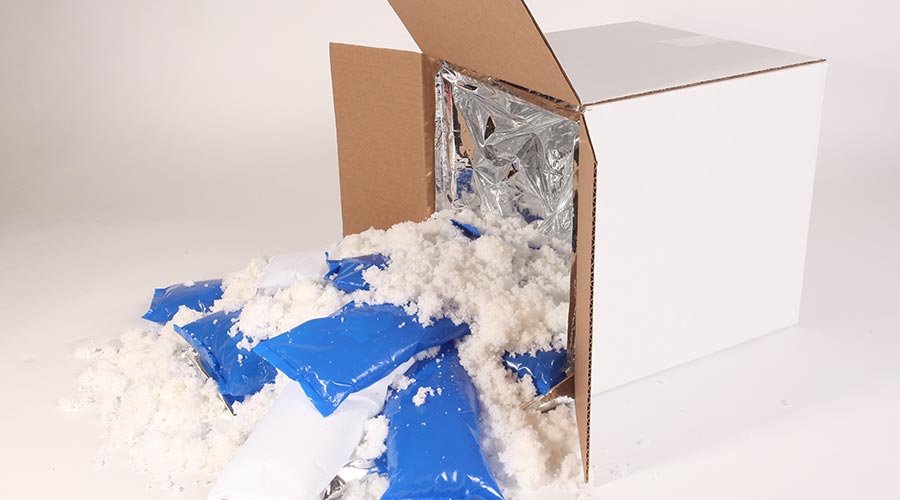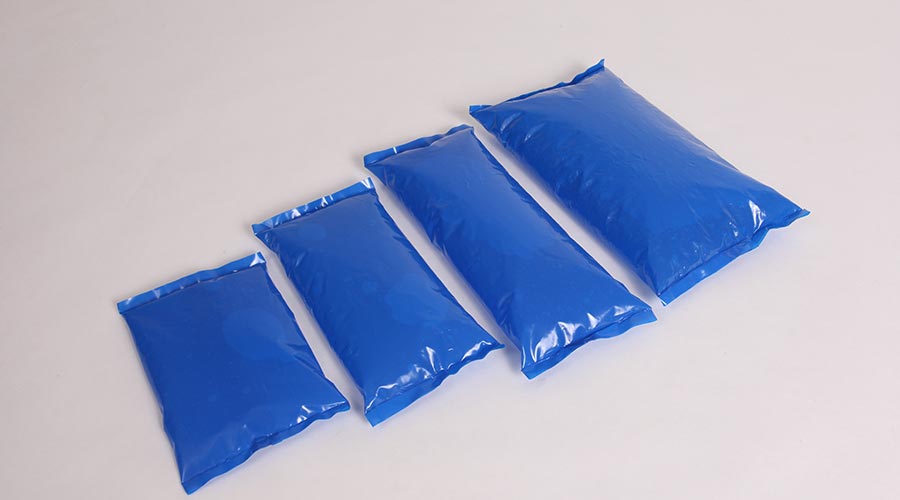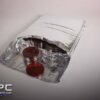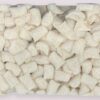Hot summer weather can quickly take its toll on temperature-sensitive goods in-transit, potentially rendering them useless and even unsafe.
To avoid melted chocolates and ice creams, spoiled medications and vaccines, and contaminated meats and seafood caused by intense summer heat, you need an appropriate shipping process in place to protect your goods. And with extreme weather events like heatwaves becoming more frequent and intense, this need has never been greater.
With this in mind, we have developed a guide to safely shipping perishable products in hot weather to help ensure your business can keep its goods moving throughout the long summer months.
Product types that are particularly vulnerable to heat
Any product that deteriorates when exposed to ambient environmental conditions, such as heat and humidity, is a perishable good. Here are some examples of perishable goods that react particularly badly to heat.
1. Food and beverages
Chocolate and ice cream are the obvious examples of temperature-sensitive foods. Even slight breaches of their melting points can cause them to lose some of their taste and consistency.
There are many others with particular temperature requirements as well though. Fruits, vegetables and dairy products must generally be kept between 45° F and 57° F, while frozen meats and seafood are recommended to remain below -0.4° F. Many beverages are also liable to spoil under intense summer heat.
Here are some other examples of temperature-sensitive food and beverages:
- Pickles
- Raisins
- Caviar
- Wine and champagne
- Bottled and keg beer
- Fresh juices
- Soft drinks
2. Health and pharmaceuticals
Some medical products, such as vaccines, are highly sensitive to deviations from their required temperature range. Many can be safely stored between 36 °F and 46 °F but others need extreme cold conditions to remain stable and usable.
Other health products pose logistical challenges in hot summer weather too. Many health supplements, for instance, are contained in gelatin capsules that will stick together in hot weather.
Here are some other examples of heat-sensitive health and pharmaceutical products:
- Injectable medicine
- Insulin
- I.V. medicines
- Pharmaceutical mixtures
3. Other examples of heat-sensitive products
- Certain cosmetic products, such as lipsticks and cream-based shadows, are prone to melting under hot shipping conditions.
- Plastic bottles containing shampoos, liquid soaps and conditioners, may expand and “pop” due to extreme temperatures, causing the contents to spill out.
- Various industrial chemicals, such as acetic acid and propionic acid, should not be exposed to high temperatures as this could lead to leaks, explosions and fires.
Tips for shipping in hot weather
Once you’ve identified the cold temperature requirements of your goods, here’s a few tips to follow to help you manage them in hot weather.
1. Use an appropriate insulated packaging material
The packaging containing your perishable product is the first line of defense against hot temperatures.
Establishing an insulating layer between your temperature-sensitive goods and surrounding heat is the most effective way of protecting them.

Look for an insulated packaging supplier that provides thermally effective, recyclable materials
Not all insulated packaging products are alike though. You need to think about your particular product temperature requirements alongside the other needs of your business.
For instance, some common insulated packaging solutions, such as expanded polystyrene (EPS) coolers, may not be appropriate since they take up a lot of storage space when not in use, cannot be easily customized and are made from non-recyclable materials.
Check out our guide on how to choose the best insulated packaging provider.
2. Use cold packs
To complement the thermal protection offered by insulated packaging in hot weather, it’s a great idea to use cold packs. They help to establish and maintain colder temperatures for longer, which will prove especially useful in the event of a delayed shipment or extreme heat.

Always use cold packs to provide additional protection when shipping in hot climates.
Even if you use custom-sized thermal packaging, there may still be some empty space surrounding your product. This significantly reduces thermal performance, especially in hot weather. Filling up the empty space with cold packs will help ensure your products can withstand the heat for much longer.
3. Carry out a performance test under expected conditions
Before shipping your temperature-sensitive products in hot weather, it’s recommended to test how they will perform with the packaging you have chosen.
Performance testing in environmental chambers allows you to do this by replicating expected temperature conditions for the entire shipping duration. Sensors reveal the temperature of your goods throughout the test and, if necessary, modifications can be made.
Otherwise, you can’t be confident that your cold-chain shipping strategy will be able to handle the hot weather.
At IPC, we use an in-house thermal testing chamber to ensure products will remain within the required temperature range during transit.
4. Label your products appropriately
Even with meticulous preparation, the world of cold-chain logistics is complicated and messy. This means things can go wrong, such as leaving temperature-sensitive goods out in the sun for too long. This could happen at a logistics facility or at the final delivery point.
To minimize the chances of this happening, be sure to label your products and packaging appropriately to let handlers know it is a temperature-sensitive good.
Discuss your cold shipping needs with an insulated packaging expert
If your company is new to shipping temperature-sensitive goods, then the first step you need to take is to speak with experts that have experience in cold chain logistics. In particular, speak with an expert in insulated packaging since this will be the biggest determiner as to whether or not you successfully ship your goods in hot weather.
For more than 20 years, IPC has designed and manufactured innovative insulated packaging that can withstand extreme ambient temperatures. All our insulated packaging products are available in custom-sizes, highly-recyclable, and incredibly space-efficient.
Get in touch with us now to discuss your cold-chain shipping needs and find out how IPC can help.









